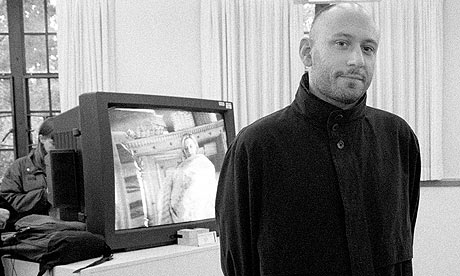
"I find it very nearly impossible to read a contemporary novel that presents itself unselfconsciously as a novel, since it's not clear to me how such a book could convey what it feels like to be alive right now. Instead it must constantly be shifting shape, redefining itself, staying open for business way past closing time."
David Shields, Reality Hunger
I had just completed the first draft of my novel. The dismal weather had, at least, been useful for something. For weeks I had tapped out 1,000 words a day, staring at leaden skies beyond the window. I had considered character, structure, and what the agent, in our meeting, had termed "freight". I'd done my best to murder my most darling phrases, as Diana Athill advised in Saturday's Review section. The completed draft had been placed under the bed, to bake, with a plan to return after a couple of weeks with a fresh eye. And it was during that in-between time that I picked up David Shields's Reality Hunger.
If you've somehow missed the hype, this cauldron of quotes, appropriation, intentional plagiarism, and soundbites asserts in 617 points that the "standard" novel (what's that?) is dead, and that the best stories are true. It's a youthful manifesto (written by a middle-aged academic) that fastens on "the generic edge, the boundary between what [is] roughly called non-fiction and fiction". It says things like: "What I want is the real world, with all its hard edges, but the real world fully imagined and fully written, not merely reported." Or: "The novel is dead. Long live the anti-novel. Build it from scraps!"
In my vulnerable state I was hooked, succumbing to its arguments with unusual ease. The familiarity of some of the material (credited for legal reasons to a diverse array of authors, musicians and poets in an appendix at the back) only adds to the book's swagger. Challenged and then alarmed, its belligerence seemed, at first, to negate everything I was doing. Do novels serve the culture still? Do we need to make up stories? Why am I pushing imaginary characters around London and beyond? What am I actually trying to say? I started to panic, yet couldn't put the book down. (I even debated whether to delete the whole damn 80,000 words and start again.) There's something so persuasive about the man at a party who taps into every primal fear with a few well-chosen quotes; it doesn't matter if his arguments, like this one (from an introduction by Geoffrey O'Brien), fall apart upon later contemplation: "Since to live is to make fiction, what need to disguise the world as another, alternate one?"
Yet somewhere around the halfway mark, repetition began to weaken, rather than strengthen the rhetoric. It rang hollower than it had at the start. The author's emphasis on "memoir" and "lyric essay" were surely little more than subjective opinion ("I'm bored by out-and-out fabrication, by myself and others, bored by invented plots and invented characters"). And increasingly I felt irked by his line of thought (as was undoubtedly his intention): "Story seems to say that everything happens for a reason, and I want to say, No, it doesn't." To which I, in turn, would ask Shields: haven't you read a really good novel recently?
By the end of the book I'd long since stopped nodding like a dressed-up dog. A certain equanimity has since been restored in my own work, the second draft now under way. But I'd still recommend Reality Hunger as essential reading for both readers and writers. Bold, entertaining, contentious, it pushes us to think about the processes and future of fiction-making, as well as its relation to non-fiction. In short, it shakes us up a bit.
Still, there's only one answer to the question, "Is there anything left for fiction to have?" Isn't there?

